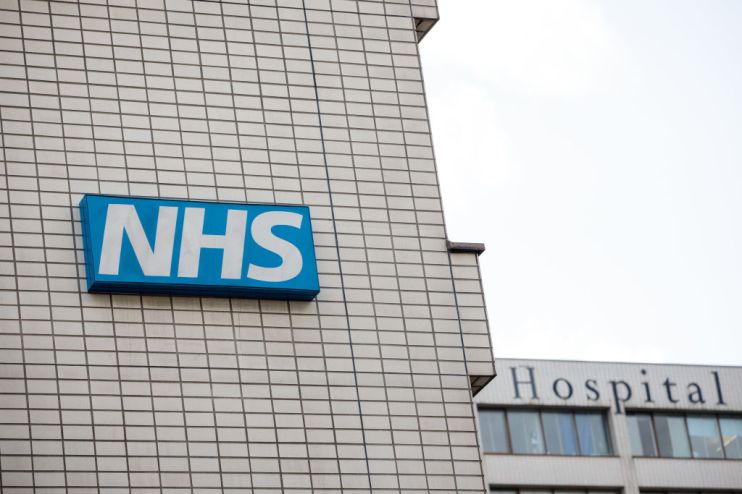Time to target NHS in energy efficiency drive, says sustainability boss

The government should encourage public sector bodies such as the NHS to significantly drive down energy usage and lower their bills through insulation and behavioural changes, the boss of a leading energy efficiency specialist has warned.
Jonathan Maxwell, chief executive of Sustainable Development Capital (SDCL), told City A.M. he wanted the government to drive energy efficiency measures across state-owned buildings such as directions to turn off the lights at night and managing air condition systems more effectively, alongside boiler upgrade and wall insulation.
He argued this would have an instant impact on the UK’s carbon emissions, compared to the more protracted benefits from new renewable projects.
“Unlike trying to go through the planning cycle for a new power plant, energy efficiency can be done quickly – just weeks in the case of lighting. It’s the pace of doing energy efficiency which is exciting,” he said.
The UK is aiming to reach net zero carbon emissions over the next three decades.
SDCL has raised over £1.6bn of investment in energy efficiency and is listed on the main market of the London Stock Exchange.
It operates a portfolio with on-site generation projects such as roof-top solar, storage and green gas for a wide range of buildings from data centres to schools and hospitals to large district energy networks and major industrial facilities in high emission sectors such as steel and chemicals.
Maxwell noted that households, which have been the focus for the government’s energy efficiency drives, only make up 38 per cent of the UK’s energy consumption, while industry, transport, commercial buildings and public sector buildings are the true drivers of the country’s emissions.
“In business, industry and the public sector, lighting, heating and, ventilation, air conditioning, cooling matter. Half of the world’s electricity goes through motors, so looking at the building management systems and controls can actually save the waste of energy at the point of use,” he said.
The NHS owns nearly 3,000 properties across the country and makes up 40 per cent of energy consumption in the public sector and around four per cent of national energy usage on a year-by-year basis.
Maxwell noted the NHS is only a third of the way through its programme of converting older, filament lights to LED systems.
He said: “The level of energy waste associated with that is extraordinary. Changing those lights may cost £300m-£400m today, but it will deliver a benefit I think of about £1bn over the next 10 years.”
Alongside the NHS, Maxwell also noted other areas of the public sector such as the ministry of defence and the educational sector where savings could be made.
Government efficiency plans lack direction
The government has aimed to drive reduction in energy waste across state-owned buildings through the Public Sector Decarbonisation Scheme.
It targets an emissions reduction from public sector buildings of 75 per cent by 2037, compared to a 2017 baseline, as set out in the 2021 Net Zero and Heat and Buildings strategies.
The current third phase of funding provides £1.43bn in grants over between 2022-2024 through multiple application windows – on top of £1.1bn in overall funding from the first two stages of the scheme.
In March, it announced a further £409m for schools and hospitals to drive down their carbon emissions.
However, Jess Ralston, head of energy at climate advisory group ECIU, told City A.M. she was unconvinced the long-terms targets were enough, and argued that more impetus from the government was needed to drive down energy use – with more intermediate milestones.
“I think a joined-up strategy on energy efficiency would be hugely helpful. There doesn’t seem to be a very bold overall plan for public sector buildings,” the energy expert argued.
She believed energy efficiency measures failed to capture political attention, as insulation was “not very sexy” compared to “big shiny infrastructure projects that Grant Shapps can go and stand outside next to”.
Ralston also dismissed concerns that energy efficiency could be considered a “nanny state” tactic, noting that countries such as Italy and Spain eased last winter’s gas crisis and reduced the continent’s reliance on Russia through measures such as lowering air-condition, and turning off lights and water fountains on public buildings.
She contrasted this with the frequency of lights being left on in offices overnight across the City of London
“I think people are crying out for tips and advice on what to do. Martin Lewis is everywhere – giving people tips on how to save energy,” she said.
When approached for comment, a government spokesperson said: “We have reduced emissions from the central Government estate by more than half in the last 12 years, and we’re supporting those running our public buildings to make similar progress.
“So far over 900 projects have been awarded funding to support heat decarbonisation and energy efficiency plans across the public sector estate, including schools, hospitals and leisure centres.”